Turning Crypto Into Cash: How It Works and Where to Start
The rise of cryptocurrency has brought with it a growing need to convert digital assets into traditional cash. As the crypto ecosystem matures, so too do the methods for exchanging it for money. Understanding the process and available methods is crucial for maximizing value and minimizing fees.
There are several ways to convert crypto into cash, including selling on wallet apps, using central exchanges, P2P exchanges, or Bitcoin ATMs. Each method has its advantages and suits different needs based on factors like speed, cost, and security.
This article will provide a comprehensive guide on the various conversion methods, helping both beginners and experienced crypto users navigate the landscape.
Understanding Cryptocurrency as Real Money
The concept of cryptocurrency has revolutionized the way we perceive money in the digital age. Cryptocurrency is not just a digital token; it’s a decentralized system that allows for peer-to-peer transactions without the need for intermediaries like banks.
What Makes Cryptocurrency Valuable
The value of cryptocurrency is derived from its scarcity, utility, and market demand. Unlike traditional fiat currencies, which can be printed at will by central banks, cryptocurrencies have a capped supply, which can contribute to their value. The utility of cryptocurrency as a medium of exchange and store of value also plays a significant role in determining its worth. As more people adopt and use cryptocurrencies, their value can potentially increase due to market demand.
The Relationship Between Crypto and Fiat Currency
Cryptocurrency and fiat currency coexist in the financial ecosystem, but they operate on different principles. While fiat currencies are backed by governments and their value is tied to the economic health of a country, cryptocurrencies derive their value from their technological innovation and the trust users place in them. The relationship between crypto and fiat is complex, with some investors viewing cryptocurrency as a hedge against traditional financial systems. For those looking to convert their cryptocurrency into real money, understanding this relationship is crucial, as discussed in more detail on XE.com.
Can Crypto Be Turned Into Real Money?
Many people wonder if it’s possible to turn their cryptocurrency into real money. The answer is yes; there are multiple established methods to convert crypto assets into fiat currency.
The Conversion Process Explained
The process of converting cryptocurrency to cash involves several steps and considerations. It typically starts with choosing a conversion method, such as centralized exchanges, Bitcoin ATMs, or peer-to-peer marketplaces. The chosen platform will have its own set of requirements, including verification processes and transaction fees. Liquidity is a crucial factor, as it affects how easily cryptocurrency can be converted to cash without significantly impacting the market price.

Why People Convert Cryptocurrency to Cash
People convert cryptocurrency to cash for various reasons, including profit-taking, financial needs, and portfolio rebalancing. The decision to convert is often influenced by market conditions and personal financial goals. Understanding the regulatory framework governing these conversions is essential, especially in the United States, where such transactions are considered taxable events.
| Conversion Method | Liquidity | Transaction Fees |
|---|---|---|
| Centralized Exchanges | High | Variable |
| Bitcoin ATMs | Moderate | Higher |
| Peer-to-Peer Marketplaces | Variable | Variable |
Popular Methods to Convert Cryptocurrency to Cash
There are multiple ways to turn cryptocurrency into cash, catering to different user needs and preferences.
Centralized Cryptocurrency Exchanges
Centralized exchanges like Coinbase, Binance, and Kraken allow users to sell their cryptocurrency for cash. These platforms are known for their user-friendly interfaces and high liquidity.
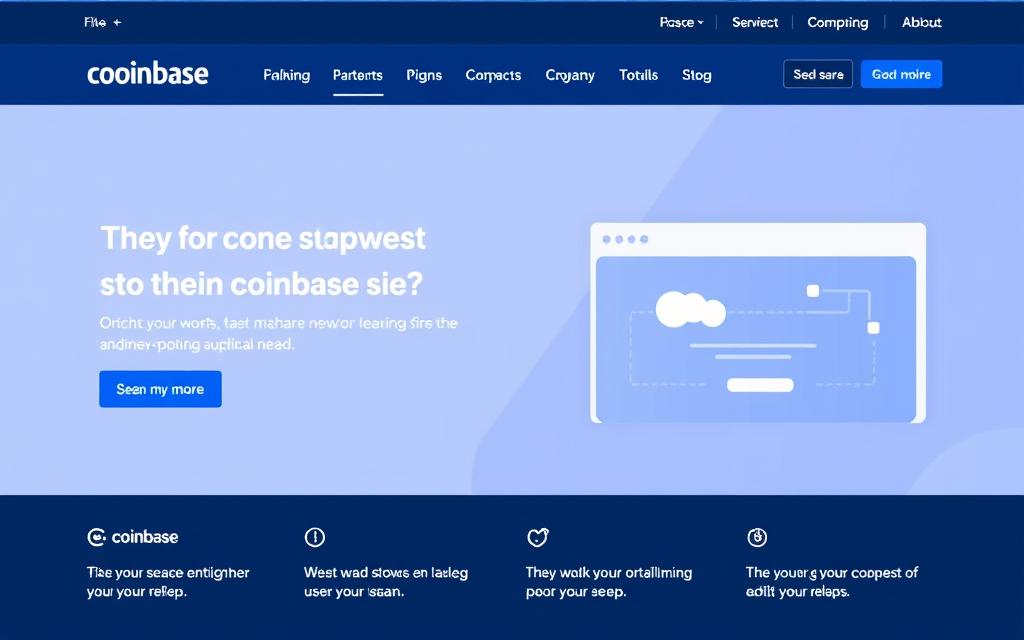
Peer-to-Peer (P2P) Marketplaces
P2P marketplaces connect buyers and sellers directly, offering a more private and sometimes more cost-effective way to convert cryptocurrency to cash.

Bitcoin ATMs
Bitcoin ATMs provide a physical location where users can exchange their cryptocurrency for cash. The number of Bitcoin ATMs is growing rapidly worldwide.
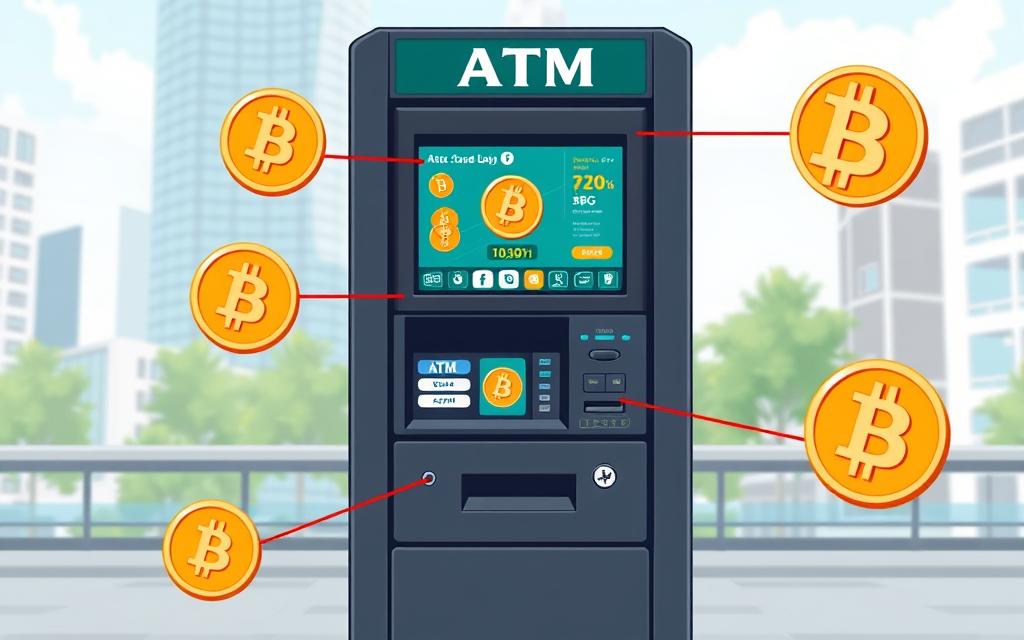
Crypto Debit Cards and Gift Cards
Crypto debit cards and gift cards offer an alternative way to utilize cryptocurrency for everyday purchases or gifting.
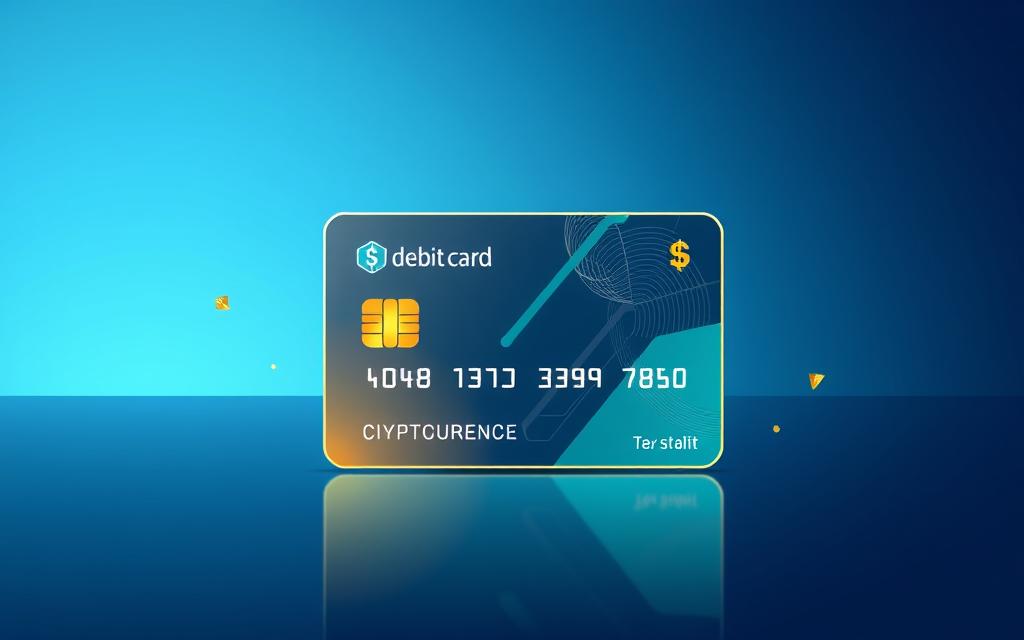
Each of these methods has its advantages and is suited to different user needs. Understanding the options available is crucial for a smooth and efficient conversion process.
Using Centralized Exchanges to Cash Out Crypto
Centralized exchanges offer a straightforward way to convert cryptocurrency into cash. These platforms provide a user-friendly interface to sell your crypto assets and transfer the funds directly to your bank account.
Step-by-Step Process
To cash out your crypto using a centralized exchange, start by creating an account and completing the identity verification process. Once your account is set up, deposit your cryptocurrency into the exchange wallet. Then, place a sell order for the desired amount, and the exchange will convert your crypto into cash. Finally, withdraw the funds to your linked bank account.
Advantages and Limitations
Centralized exchanges offer several advantages, including high liquidity, ease of use, and regulatory compliance. However, they also have limitations such as transaction fees, withdrawal times, and potential privacy concerns. It’s essential to weigh these factors when choosing an exchange.
Popular Exchanges for US Users
Some popular centralized exchanges for US users include Coinbase, Kraken, Gemini, and Binance.US. When selecting an exchange, consider factors such as fees, supported cryptocurrencies, and user experience. Coinbase, for example, is known for its user-friendly interface, while Kraken offers advanced trading features.
Peer-to-Peer Trading: Selling Crypto Directly
Direct transactions between buyers and sellers are facilitated through peer-to-peer trading, offering a potentially more lucrative method for cashing out cryptocurrency. This method allows individuals to set their own prices and potentially earn better rates compared to traditional exchange platforms.
How P2P Platforms Work
Peer-to-peer platforms like LocalBitcoins, Paxful, and Binance P2P connect buyers and sellers directly, providing escrow services to secure transactions. To start, users create listings specifying the cryptocurrency amount and price they wish to sell for. Potential buyers can then browse these listings and negotiate terms directly with the seller. Once an agreement is reached, the buyer initiates the payment, which is held in escrow until the seller confirms receipt. This process ensures a secure transaction for both parties.
Security Tips for P2P Transactions
To ensure secure P2P transactions, it’s crucial to use the platform’s escrow service, verify the counterparty’s identity, and maintain secure communication channels. Always follow the platform’s guidelines and be cautious of deals that seem too good to be true. For more information on buying crypto, you can visit this guide.
Setting the Right Price for Your Crypto
When setting the price for your cryptocurrency on P2P platforms, consider the current market rate, the platform’s fees, and the payment method you’re offering. Researching what similar sellers are offering can help you set a competitive price. Additionally, being flexible with your pricing can attract more buyers and lead to quicker transactions.
Bitcoin ATMs: Converting Crypto to Cash Locally
Converting cryptocurrency to cash has become easier with the advent of Bitcoin ATMs across the globe. These specialized machines allow users to exchange their digital assets for local currency, providing a quick and relatively straightforward process.
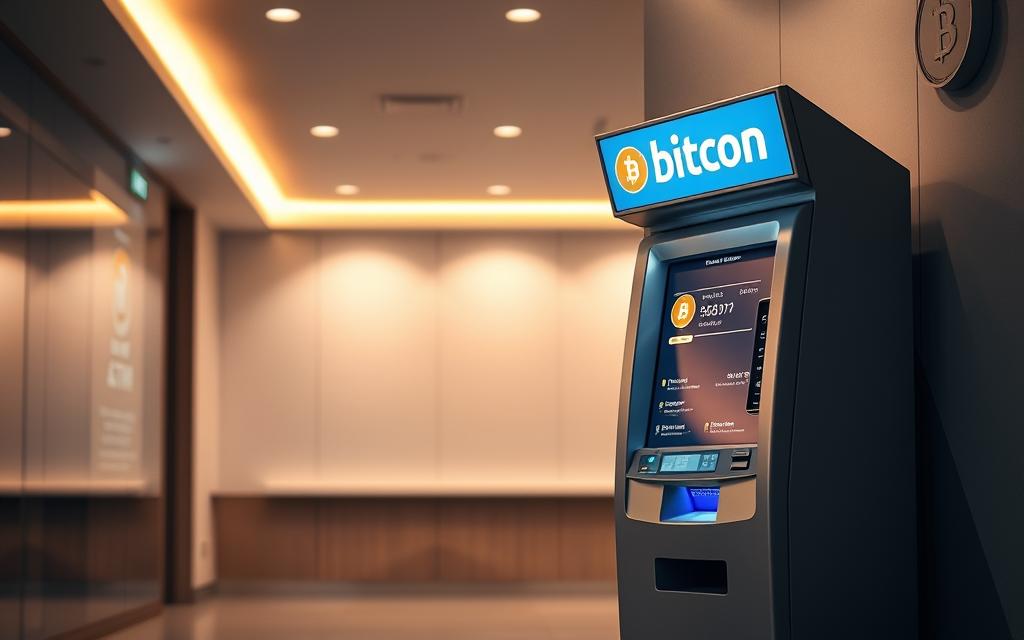
Finding and Using Bitcoin ATMs
To use a Bitcoin ATM, one must first locate one. Resources like Coin ATM Radar and Bitcoin ATM Map are invaluable tools for finding nearby Bitcoin ATMs. Once a machine is located, the process typically involves selecting the “sell” or “withdraw” option, entering the amount of cryptocurrency to be converted, and following the on-screen instructions to complete the transaction.
The process is designed to be user-friendly, with most machines guiding users through the necessary steps. However, it’s essential to be aware of the fees associated with the transaction, as they can vary significantly between different ATM operators.
Transaction Limits and Verification Requirements
Bitcoin ATMs have varying transaction limits, influenced by regulatory requirements and the machine’s operator. Additionally, identity verification is often required, ranging from simple phone number verification to more stringent government ID scanning. Understanding these requirements beforehand can streamline the process.
Comparing ATM Fees with Other Methods
While Bitcoin ATMs offer convenience, their fees can be higher compared to online exchanges or peer-to-peer platforms. It’s crucial to compare these fees to ensure you’re getting the best deal. For instance, some exchanges might offer more competitive rates for larger transactions, making them a more economical choice.
| Method | Typical Fees | Transaction Speed |
|---|---|---|
| Bitcoin ATMs | 5-10% | Immediate |
| Online Exchanges | 1-3% | Varies |
| P2P Platforms | 0.5-2% | Varies |
By understanding the fees and processes associated with Bitcoin ATMs, users can make informed decisions about the best method for converting their cryptocurrency to cash.
Important Considerations Before Cashing Out
Before converting your cryptocurrency to cash, it’s crucial to consider several key factors that can impact your financial outcome. Understanding these elements can help you make informed decisions and avoid potential pitfalls.
Tax Implications of Converting Crypto to Cash
Converting cryptocurrency into fiat currency is a taxable event, regardless of the method used, whether it’s selling on an exchange, peer-to-peer, using a Bitcoin ATM, or loading onto a crypto debit card. It’s essential to consult with a tax professional to understand the tax implications in your area. In the United States, cryptocurrency is treated as property for tax purposes, subject to capital gains tax. Keeping accurate records of your transactions is vital for tax compliance.
Transaction Fees Across Different Methods
Transaction fees vary significantly across different conversion methods. Exchanges, peer-to-peer platforms, Bitcoin ATMs, and crypto debit cards all have different fee structures. Understanding these fees is crucial to minimize your costs. For instance, Bitcoin ATMs often charge higher fees compared to online exchanges.
Market Timing and Price Considerations
Market timing plays a significant role in the value of your conversion. Cryptocurrency markets are highly volatile, and the price can fluctuate rapidly. Strategies such as limit orders can help optimize your conversion timing.
Security Best Practices
Security is paramount when converting cryptocurrency to cash. Using two-factor authentication, maintaining secure passwords, and being cautious of phishing attempts are essential practices. Ensuring your accounts are secure can protect your assets during the conversion process.

Comparing Cash-Out Methods: Which Is Best for You?
When it comes to converting cryptocurrency into cash, the best method for you depends on several key factors. Different situations call for different approaches, and understanding these factors is crucial.
For Quick Access to Cash
If you need immediate access to cash, consider using Bitcoin ATMs or certain exchanges that offer rapid transactions. These methods provide a quick way to convert bitcoin to cash, although they may come with higher fees.
For Lowest Fees
To minimize costs, look for exchanges with competitive fee structures. Some peer-to-peer (P2P) marketplaces also offer lower fees by directly connecting buyers and sellers.
For Maximum Security
For enhanced security, prioritize methods with robust protective measures. Centralized exchanges often implement advanced security protocols, making them a safer choice for converting cryptocurrency to cash.
For Beginners vs. Experienced Users
Beginners may prefer user-friendly exchanges with straightforward interfaces, while experienced users might opt for more complex methods that offer greater control over transactions.
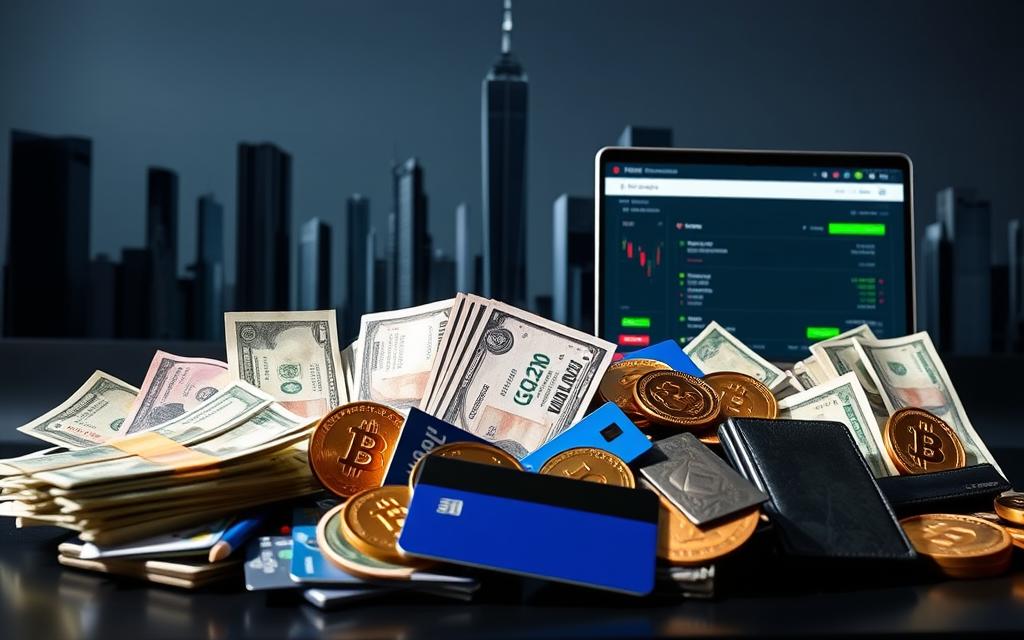
Ultimately, the best cash-out method depends on your specific needs and priorities. By considering factors like fees, security, and ease of use, you can choose the most suitable option for converting your cryptocurrency to cash.
Conclusion
As cryptocurrency gains more widespread acceptance, converting it to cash is becoming a more common necessity. We have explored various methods to achieve this, including centralized exchanges, Bitcoin ATMs, and Peer-to-Peer (P2P) marketplaces. Each method has its advantages and is suited to different needs and circumstances.
When selecting a conversion method, it’s crucial to consider factors such as fees, security measures, and supported bank withdrawal methods. Understanding market rates and potential tax implications is also vital. As the cryptocurrency market continues to mature, the options for converting digital assets to cash will evolve, making it essential to stay informed about regulatory changes.
To successfully convert cryptocurrency to cash, one must balance convenience, cost, and security. By doing thorough research and choosing a reputable exchange or platform, users can navigate this process with confidence. Ultimately, understanding both cryptocurrency fundamentals and traditional banking systems is key to a smooth conversion.
FAQ
How do I convert my cryptocurrency to cash?
You can convert your cryptocurrency to cash using a centralized cryptocurrency exchange, peer-to-peer (P2P) marketplaces, Bitcoin ATMs, or crypto debit cards. Each method has its own steps and requirements.
What are the fees associated with cashing out cryptocurrency?
Fees vary depending on the method you choose. Centralized exchanges charge trading fees and withdrawal fees, while P2P platforms may charge a commission. Bitcoin ATMs typically have higher fees compared to other methods.
Are there any tax implications when converting cryptocurrency to cash?
Yes, converting cryptocurrency to cash may trigger capital gains tax. It’s essential to consult a tax professional to understand your obligations and ensure compliance with tax laws.
How do I ensure the security of my transactions when cashing out cryptocurrency?
To ensure security, use reputable exchanges and P2P platforms, enable two-factor authentication, and be cautious when sharing personal and financial information. Additionally, consider using a hardware wallet to store your cryptocurrency.
What is the best method for cashing out cryptocurrency quickly?
For quick access to cash, using a centralized cryptocurrency exchange or a Bitcoin ATM can be the most convenient options. However, be aware that Bitcoin ATMs may have higher fees and limits.
Can I sell my cryptocurrency directly to another person?
Yes, you can use P2P marketplaces to sell your cryptocurrency directly to another person. These platforms connect buyers and sellers, allowing for direct transactions.
How do I determine the right price for my cryptocurrency when selling?
To determine the right price, research current market rates and consider the fees associated with the transaction. You can also use price comparison tools to ensure you’re getting a fair deal.
What are the advantages of using a centralized exchange to cash out cryptocurrency?
Centralized exchanges offer a user-friendly interface, high liquidity, and a wide range of trading pairs. They also often provide robust security measures to protect your assets.















